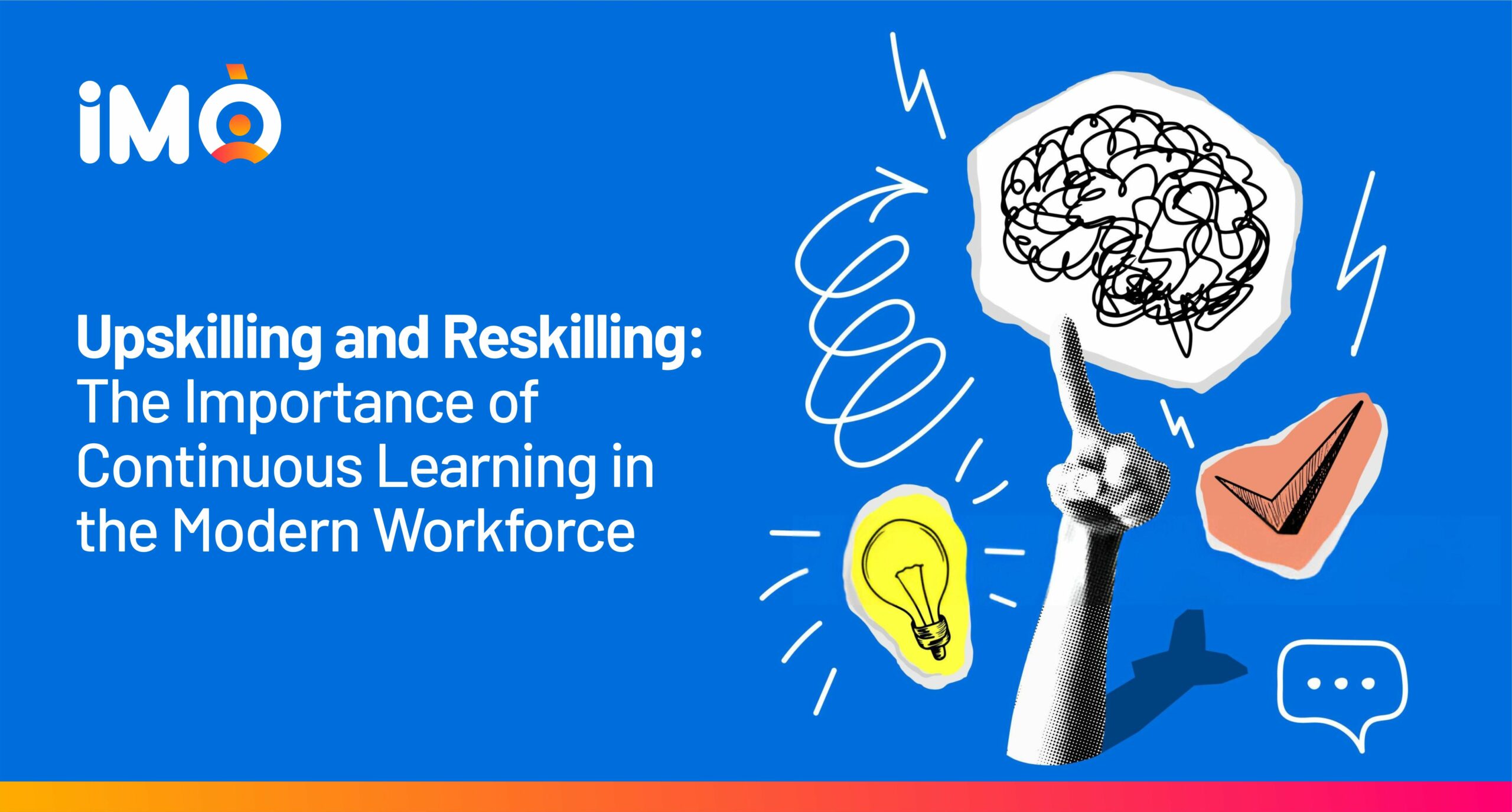As technology advances and industries change rapidly, the need for a workforce that can adapt has never been greater. Innovations like artificial intelligence and automation are reshaping job requirements, making continuous learning essential for both personal career growth and organisational success. Skills that were once in high demand can quickly become outdated, so investing in learning opportunities is not optional; it’s a necessity for companies that want to remain competitive.
Organisations that fail to prioritise employee development, risk losing talent and falling behind their competitors. Fortunately, digital platforms have made learning more accessible, allowing employees to engage with training at their own pace. Companies must cultivate a culture of continuous education by providing resources and support, which ultimately drives innovation and enhances overall success.
Understanding Upskilling and Reskilling
Upskilling involves providing employees with new skills that enhance their current capabilities. For example, a marketing professional might learn to use data analytics tools to better understand customer behaviour. This not only improves their performance but also adds value to the organization by creating a more adaptable workforce.
Reskilling, on the other hand, prepares employees for entirely new roles, especially as automation makes some jobs obsolete. For instance, a factory worker might learn coding to transition into software development. This flexibility not only boosts the worker’s employability but also helps fill skill gaps within the organisation.
Both upskilling and reskilling are vital in today’s fast-paced job market. They help employees remain competitive and allow organisations to thrive by fostering a learning environment that mitigates skill obsolescence and attracts top talent.
The Importance of Continuous Learning
Continuous learning is crucial in today’s workforce for several reasons. Rapid technological advancements mean that employees must constantly adapt to new tools and processes. As industries evolve, new job roles emerge while others disappear, making it essential for workers to engage in upskilling and reskilling to stay relevant. Investing in ongoing employee development positively impacts job satisfaction and retention rates.
Companies that prioritise learning create an environment where employees feel valued and supported in their growth, leading to greater loyalty and a more stable workforce. Moreover, promoting a culture of continuous learning allows organisations to be more agile and responsive to market changes. A workforce that regularly updates its skills is better equipped to navigate challenges, ensuring the organisation can thrive even in uncertain times.
By investing in their employees’ skills, companies can gain a competitive edge, as a knowledgeable workforce can drive innovation and efficiency.
Challenges in Upskilling and Reskilling
Despite its importance, upskilling and reskilling come with challenges. One major barrier is time constraints; employees often struggle to find time for training amid their regular responsibilities. Organisations can address this by integrating learning into daily tasks and offering flexible training schedules. Another challenge is resistance to change. Some employees may be hesitant to engage in upskilling or reskilling due to fears of failure. Organisations can overcome this by sharing success stories from within the company and providing support throughout the learning process.
Creating mentorship programs can also foster a sense of community, making the learning experience less intimidating. Resource allocation can also be a concern, as investing in training programs can be costly. Organisations need to analyse the long-term benefits of a skilled workforce and consider partnerships with educational institutions to share training costs. By addressing these challenges, companies can create an environment that encourages continuous learning and development.
The Future of Upskilling and Reskilling
As the job market continues to evolve in response to rapid technological advancements and changing industry demands, the concept of lifelong learning is set to become a fundamental norm. Professionals will increasingly need to embrace the idea that learning is not a finite process confined to formal education or initial job training; rather, it is an ongoing journey that extends throughout their careers.
This perspective shift will be essential for workforce adaptability, enabling individuals to stay relevant in a landscape where new tools, technologies, and methodologies emerge regularly. By viewing learning as a continuous endeavour, professionals can better prepare themselves for the inevitable changes and challenges they will face in their roles.
Employers will play a pivotal role in facilitating this cultural shift toward lifelong learning. They will need to provide employees with access to a variety of learning resources and opportunities for both upskilling and reskilling. This could take the form of comprehensive training programs, online courses, workshops, and mentorship initiatives that support professional growth. Additionally, creating a supportive environment that encourages experimentation and innovation will be crucial.
Organisations that foster a culture where employees feel safe to explore new ideas and take risks are more likely to cultivate a dynamic workforce that thrives on learning. This kind of environment not only enhances employee engagement but also drives organizational innovation, as individuals are empowered to apply their new skills in creative and impactful ways.
Another significant trend in the future of upskilling and reskilling will be an increased focus on soft skills. While technical competencies will always be essential, the growing prevalence of automation and artificial intelligence means that routine tasks will increasingly be handled by machines. As a result, interpersonal skills such as communication, collaboration, and emotional intelligence will become invaluable within the workforce.
The ability to work effectively with others, navigate complex social dynamics, and adapt to various communication styles will set individuals apart in a competitive job market. Employers will need to prioritise the development of these soft skills alongside technical training to create well-rounded employees who can thrive in diverse and dynamic work environments. The future of upskilling and reskilling will be characterized by a strong emphasis on lifelong learning as a standard practice.
Both employers and employees will share the responsibility of nurturing a culture of continuous development. By investing in learning resources, fostering supportive environments, and prioritising the cultivation of soft skills, organisations can ensure that their workforce is not only equipped with the technical knowledge required for today but also the adaptability and interpersonal skills necessary for tomorrow. This proactive approach to workforce development will ultimately contribute to long-term success and resilience in an ever-evolving job landscape.
Conclusion
In conclusion, the significance of upskilling and reskilling in today’s workforce is paramount. As industries evolve and job requirements change, continuous learning emerges as a crucial necessity for both employees and organisations. By investing in workforce development, companies not only enhance the skills and capabilities of their employees but also create a resilient and agile organisation capable of thriving amidst constant change.
Cultivating a culture of continuous learning demands dedication, resources, and strategic planning. While this journey may present challenges, the long-term benefits such as heightened employee engagement, improved retention rates, and enhanced organisational performance far outweigh the initial investments. As we progress further into the 21st century, embracing upskilling and reskilling will be vital for achieving success in the modern workforce. The future will undoubtedly favour those who prioritise continuous learning and adapt to the ever-changing demands of the job market.
At IMÒ, we recognise the transformative power of continuous learning. As a firm, we have embedded this philosophy into our organisational culture. We actively encourage our team to pursue professional development through training, workshops, and mentorship programs. By fostering an environment where learning is prioritised, we not only enhance our employees’ skills but also ensure that we remain at the forefront of industry trends and innovations.
We invite organisations and individuals alike to join us on this journey. Invest in your growth, embrace continuous learning, and prepare to navigate the future with confidence. Let’s work together to build a workforce that is not only skilled but also adaptable and resilient. Together, we can create a brighter future for the workforce of tomorrow.

